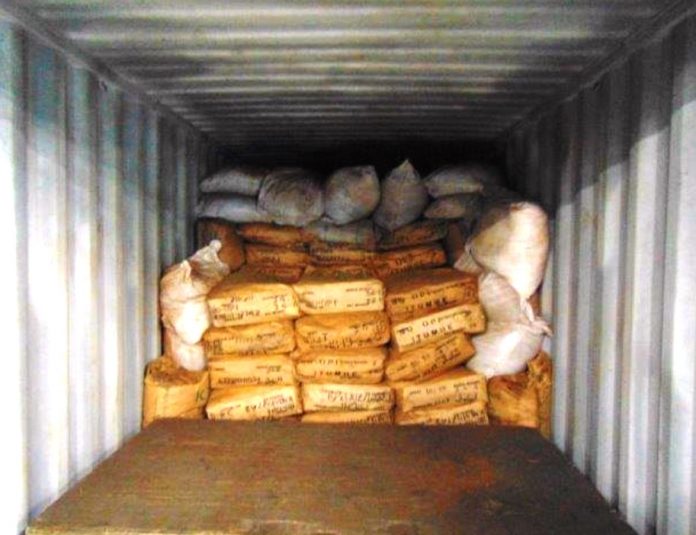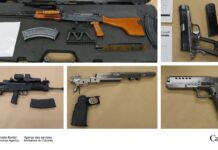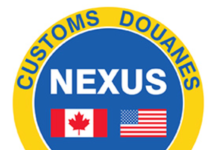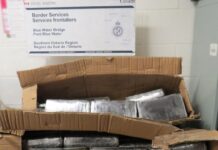ON October 4, Canada Border Services Agency’s Pacific Region Intelligence Section, with assistance from the Agency’s National Targeting Centre, identified a container of interest and referred it for examination. The marine container, imported from Kenya, was declared to contain bags of tea leaves.
CBSA officers from the Metro Vancouver Marine Operations examined the container using a wide range of detection tools and technology, and upon physical inspection, noted discrepancies in the packaging and the substance within the bags.
The officers found that 125 bags contained a dried leafy substance which was sent for analysis and identification. The analysis confirmed the substance as khat (Catha Edulis), a stimulant drug derived from a shrub and indigenous to East Africa and Southern Arabia.

Khat and its derivatives are listed under Schedule IV of the Controlled Drugs and Substances Act. The active ingredients contained in khat are cathine and cathinone, which produce a stimulant effect similar to amphetamine when the green parts of the plant are ingested. Khat is a stimulant that since 2005 has been considered by the World Health Organization as an addictive drug of abuse. There are no accepted medical uses for khat.
A total of 2,061 kg of khat was seized. The CBSA has seized 2,296 kg of khat in the first quarter of 2021-2022.
“This substantial seizure of khat was the result of a collaborative effort involving officers from the Metro Vancouver Marine Operations, the Pacific Region Intelligence Section, and the National Targeting Centre. It illustrates how thorough inspections of marine containers help to keep illicit and dangerous products out of our communities, which is a responsibility that we take very seriously,” said Joseph Chayeski, Director, Metro Vancouver Operations Division, Pacific Region, CBSA, on Friday.
Quick Facts
* The CBSA’s Intelligence Section plays a key role in the identification of border-related threats and in protecting the safety and security of Canadians. Intelligence activities are conducted to identify individuals and entities that are of interest to the CBSA in connection to organized crime, drug smuggling, and other violations of the Customs Act and the Immigration and Refugee Protection Act.
* Border services officers are highly trained in examination techniques to intercept prohibited goods and illicit drugs from entering Canada. Officers look for indicators of deception and use intelligence as well as a risk management approach in determining which goods may warrant a closer look.
* If you have information about suspicious cross-border activity, contact the CBSA Border Watch Toll-Free Line at 1-888-502-9060.












